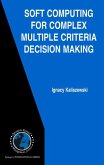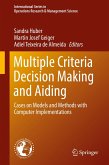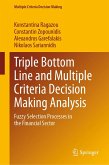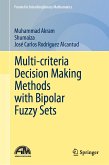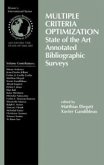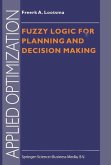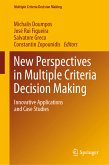Using numerical examples to illustrate their concepts and results, this book examines recently developed fuzzy multi-criteria methods, such as Intuitionistic Fuzzy TOPSIS, Intuitionistic Fuzzy TOPSIS & DEA-AHP, Intuitionistic VIKOR, Pythagorean WASPAS, Pythagorean ENTROPI, Hesitant CBD, Hesitant MABAC, Triangular EDAS, Triangular PROMETHEE, q-Rung Orthopair COPRAS, and Fuzzy Type - 2 ELECTRE. Each chapter covers practical applications in addition to fresh developments and results.
Given its structure and scope, the book can be used as a textbook in graduate courses on operations research and industrial engineering. It also offers a valuable resource for scientists working in a range of disciplines that require multi-criteria decision making.
Dieser Download kann aus rechtlichen Gründen nur mit Rechnungsadresse in A, B, BG, CY, CZ, D, DK, EW, E, FIN, F, GR, HR, H, IRL, I, LT, L, LR, M, NL, PL, P, R, S, SLO, SK ausgeliefert werden.



